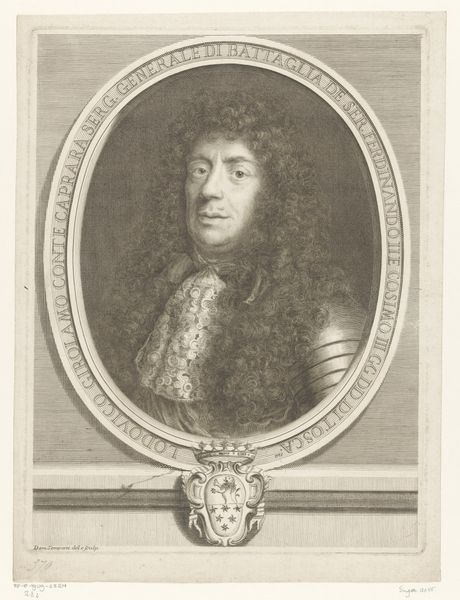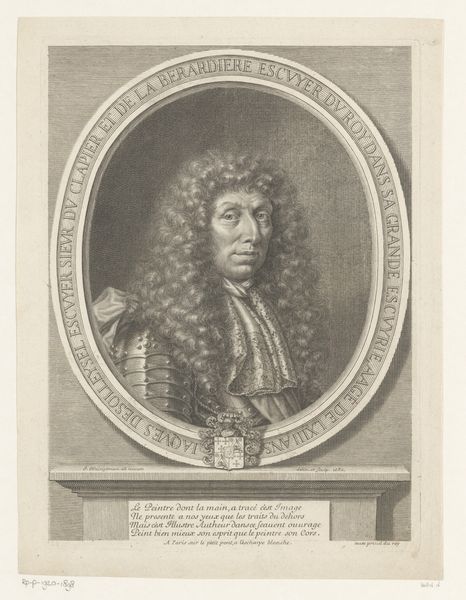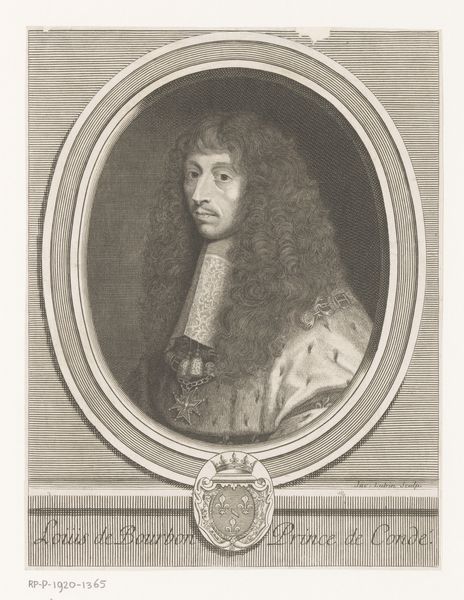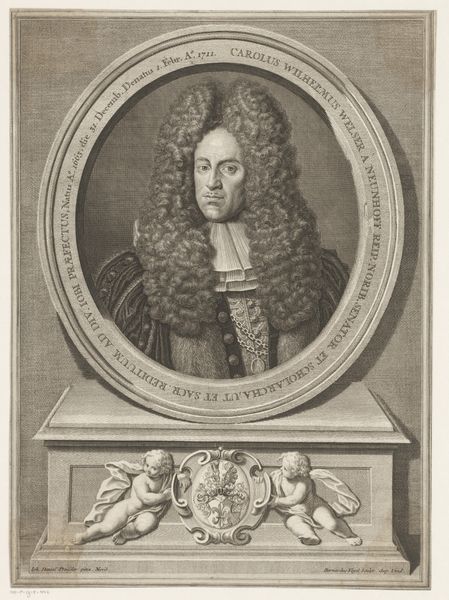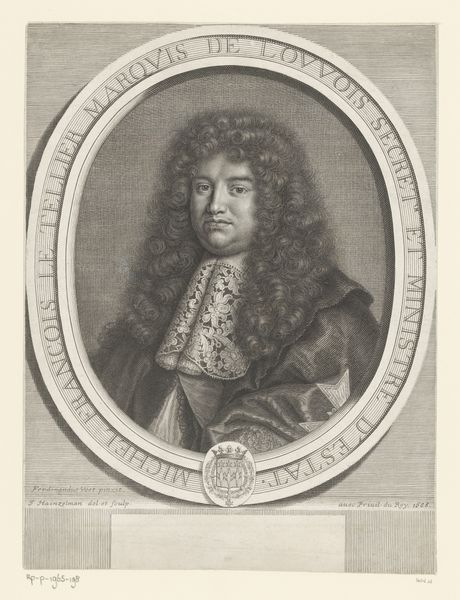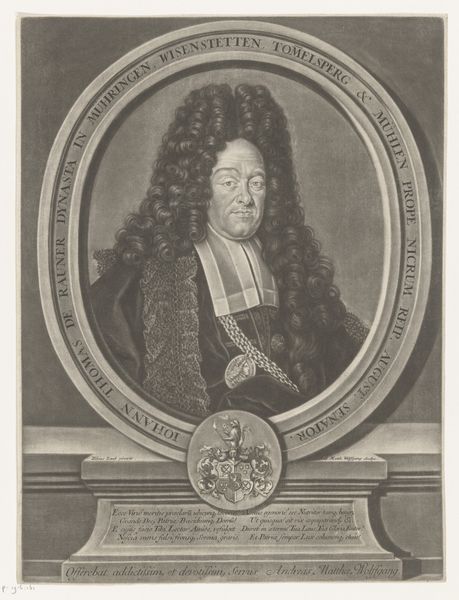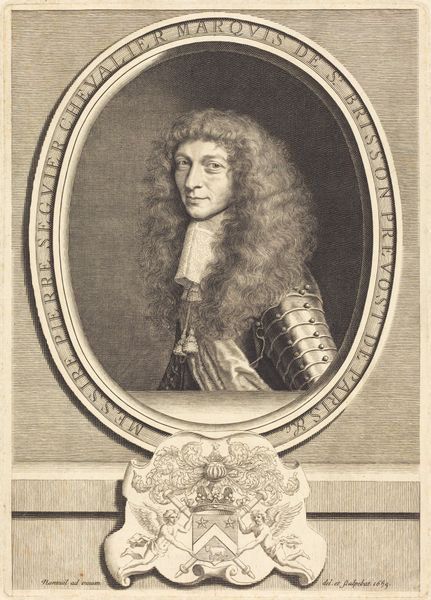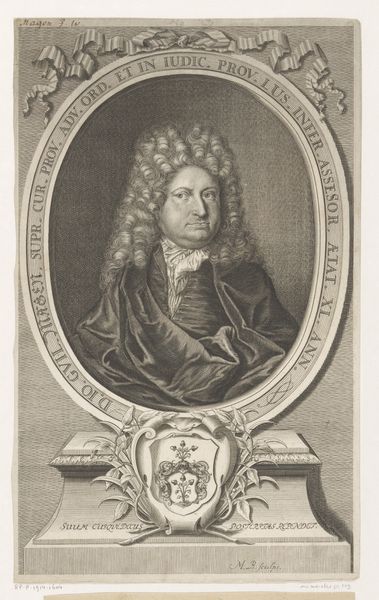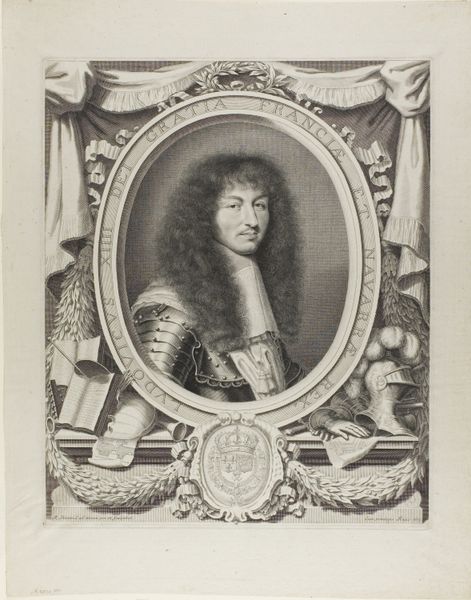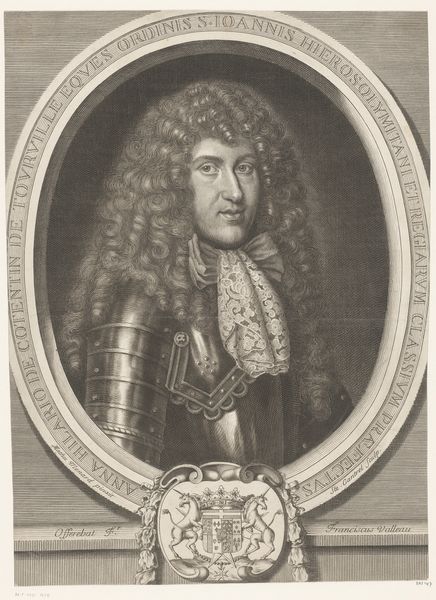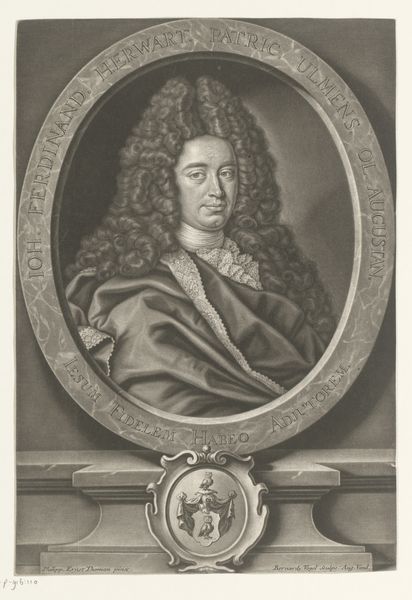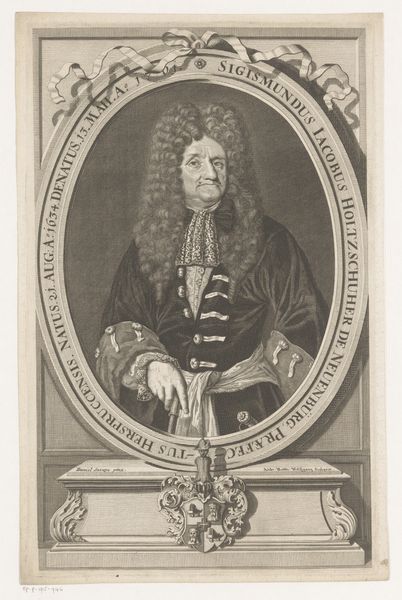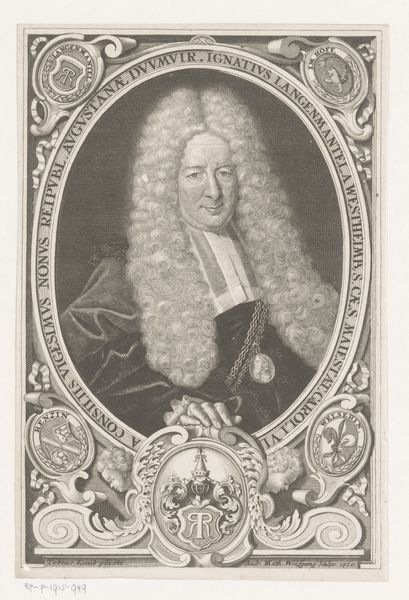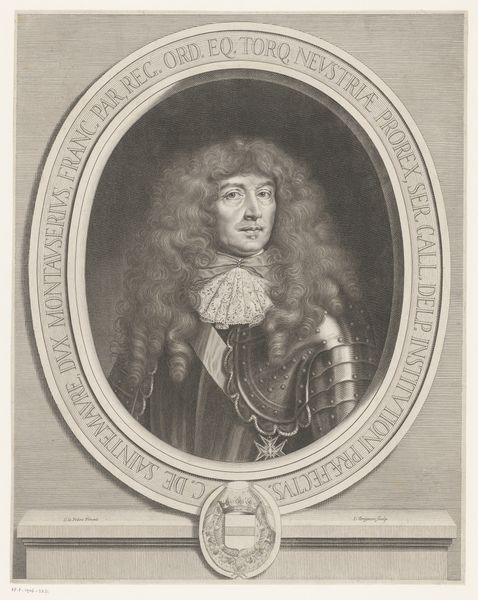
engraving
#
portrait
#
baroque
#
old engraving style
#
historical photography
#
19th century
#
line
#
history-painting
#
academic-art
#
engraving
Dimensions: height 366 mm, width 295 mm
Copyright: Rijks Museum: Open Domain
Jean Frosne created this portrait of Nicolas Dauvet in the mid-17th century, using engraving. The lines you see are not drawn, but rather incised into a metal plate, likely copper, with a tool called a burin. Ink is then pressed into these lines, and the image transferred to paper. Look closely, and you can see the fine network of hatched lines that create the tonal variations, giving depth to Dauvet’s face, his elaborate wig, lace collar, and even his armor. Consider the labor involved: the artist meticulously carving each line, controlling pressure and angle to achieve the desired effect. Engraving was a highly skilled craft, often employed for reproducing paintings or creating book illustrations. This portrait, with its attention to detail and clear depiction of status, speaks to the social function of printmaking in disseminating images of power and prestige during the early modern period. The print allows for a repeatable image, a miniature of mass production in its own right, and an early form of information technology.
Comments
No comments
Be the first to comment and join the conversation on the ultimate creative platform.
